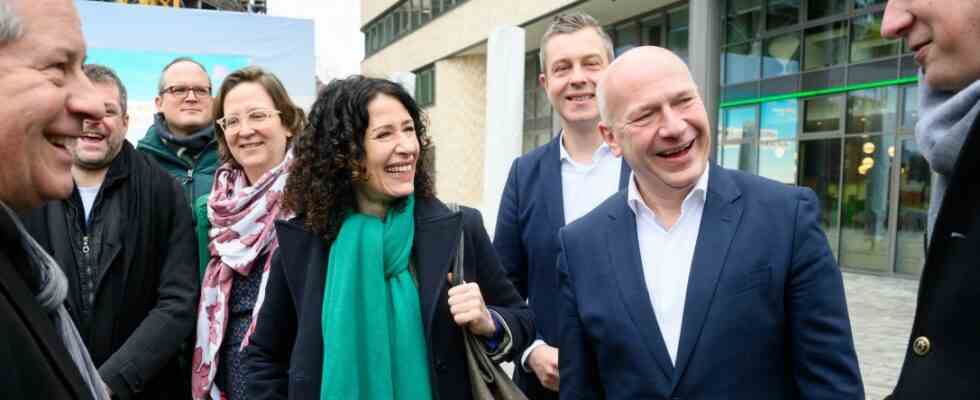The British love to bet, so you can bet your money on all sorts of political events on the island. For example, when asked which country will leave the EU next or who will become President of Argentina. The bookmakers have not yet discovered the future of the Berlin Senate for their portfolio, but it would be worth it. The odds could change almost daily and there is a lot to consider. While an alliance of SPD, Greens and Left Party was ahead last week, a few days later it is a coalition of CDU and Greens. However, all of this could change fundamentally again next Monday.
Then the state returning officer will announce the official final result of the election to the House of Representatives on February 12. It will not change the fact that the CDU is the clear winner with a good 28 percent of the votes. It is also clear that the SPD and the Greens are far behind, each with 18 percent. But both parties separate only a few per thousand. The provisional final result in the Mitte district of Berlin resulted in 21 additional votes for the Greens this week. They are only 92 votes behind the Social Democrats. Bettina Jarasch, the top candidate of the Greens, could suddenly replace the Governing Mayor Franziska Giffey in association with the SPD and the Left Party and take over the Red City Hall herself.
The election campaign was full of toughness, especially between black and green
In the midst of all these imponderables, the parties involved have been talking to each other since last Friday about how things could go on. The CDU has already negotiated with the SPD and then with the Greens; she had ruled out cooperation with the AfD or with the left. The coalition partners of the governing Senate from the SPD, the Greens and the Left Party then met on Tuesday. This Wednesday, the CDU and the Greens came together for a second round of exploratory talks, and they want to talk to each other again next Tuesday.
“Today we are dealing with issues where we are well aware that there are different views in some areas,” said Kai Wegner, the CDU’s top candidate, at the start. “You really have to explore thoroughly whether and how something could work,” said Bettina Jarasch from the Greens. This means, for example, the topics of transport policy, housing policy, diversity and the climate-neutral city.
In other words, it’s about the New Year’s Eve riots in Berlin, the blocking of Friedrichstrasse and the referendum on the expropriation of large real estate companies. The election campaign was conducted along these symbols, with all sorts of harshness, especially between the CDU and the Greens. “What the Greens and Mrs. Jarasch are demanding in the election campaign, especially in transport policy, can’t be done with me. Period,” Wegner had claimed at the end of January.
Two exploratory rounds further, the situation looks quite different. The joint performances by Wegner and Jarasch are more convincing than those with the other protagonists, and not only in terms of kitchen psychology. An alliance could also be strategically promising for both parties – especially for the Greens, as other black-green coalitions show.
“Except for a few initial pains, the Greens have all had positive experiences,” says political advisor Frank Stauss, who has already designed several election campaigns, including for former Berlin Mayor Klaus Wowereit. The Greens kept gaining ground, in Hesse, for example, where they gained almost nine percentage points; during the Jamaica coalition in Schleswig-Holstein it was at least a good five points. Stauss: “All of these coalitions came about with the statement: ‘They can’t get through that at the base'”.
“The position of the SPD is very weak”
At the same time, a pact with the Greens would also be more forward-looking for the CDU than with the SPD. “The alliance automatically carries an assumption of modernization,” says Stauss. “The CDU can present itself as a big city party.”
Lead candidate Wegner mainly created the difficulties himself: With his categorical statements, he exacerbated anti-Green sentiment among his own party base. In the party, however, a grand coalition with the SPD is not necessarily more popular. There is great concern that the Social Democrats would have a hard time with second place. “The position of the SPD is very weak,” believes campaign advisor Stauss. “The only chance they have is the Greens’ fear of their own courage.”
In any case, the situation of the SPD is tricky. Only with the Left and the Greens do they have a chance of continuing to provide the Governing Mayor. Co-party leader Raed Saleh has therefore now spoken publicly about a very unusual role for the SPD – in the opposition. That hasn’t happened in 34 years.

